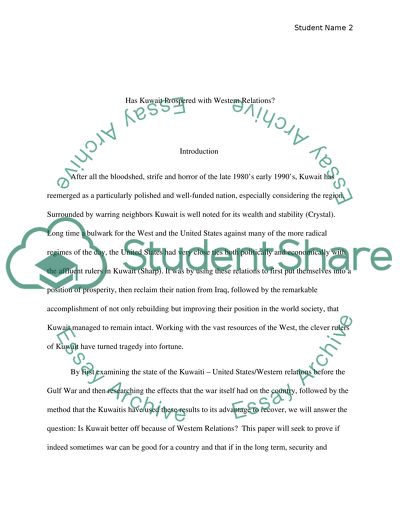Cite this document
(“Has Kuwait Prospered with Western Relations Essay”, n.d.)
Retrieved from https://studentshare.org/history/1394948-has-kuwait-prospered-with-western-relations
Retrieved from https://studentshare.org/history/1394948-has-kuwait-prospered-with-western-relations
(Has Kuwait Prospered With Western Relations Essay)
https://studentshare.org/history/1394948-has-kuwait-prospered-with-western-relations.
https://studentshare.org/history/1394948-has-kuwait-prospered-with-western-relations.
“Has Kuwait Prospered With Western Relations Essay”, n.d. https://studentshare.org/history/1394948-has-kuwait-prospered-with-western-relations.


